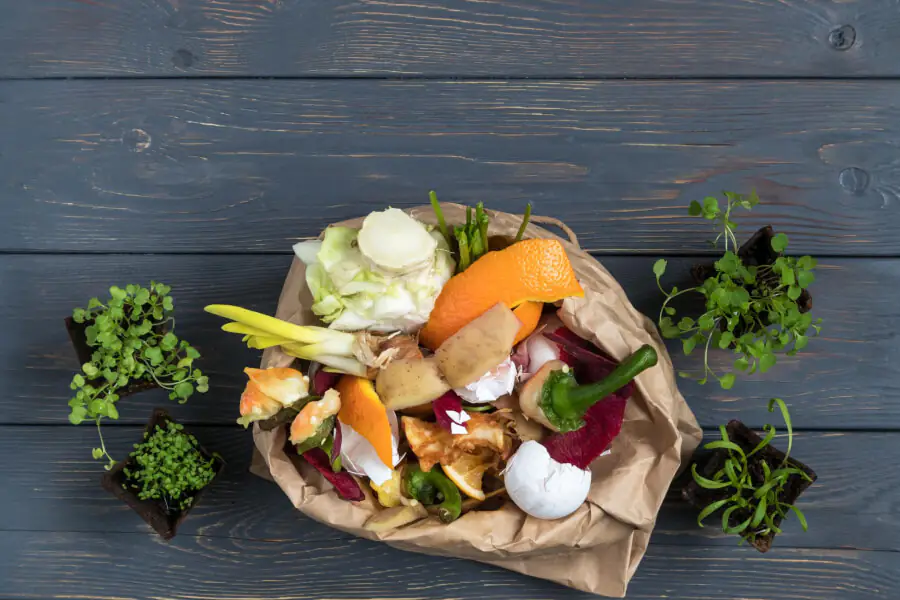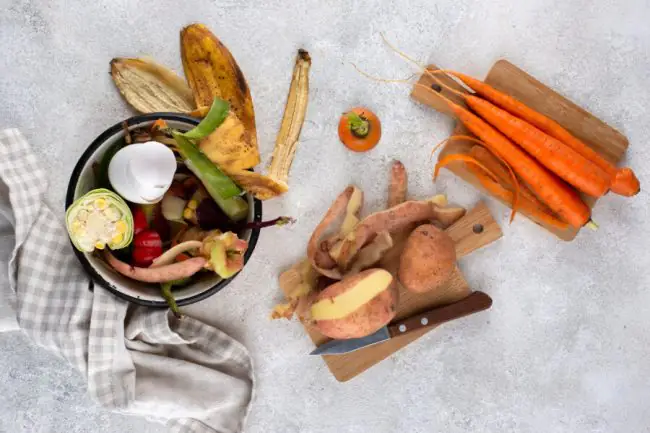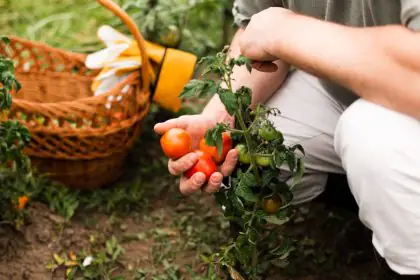Food waste is a significant concern in Spain, as it is in many parts of the world. With millions of tons of food being wasted annually, addressing food waste is not just an environmental issue but an economic one too.
Fortunately, by focusing on ingredients against food waste, we can all take small but powerful steps to make a big impact.
These four essential ingredients against food waste will help you reduce waste, save money, and cook more sustainably in Spain in 2024.
The Food Waste Crisis in Spain
Food waste is a growing issue in Spain, with households contributing a large percentage of the total food thrown away each year.
According to recent statistics, Spain wastes over 1.3 million tonnes of food annually, and much of this waste is due to over-purchasing and improper storage. By incorporating the right ingredients against food waste, we can all help mitigate this crisis.
These ingredients are practical tools that enable us to plan better, use leftovers wisely, and reduce the food waste that happens daily in our homes.
Current Statistics and Trends in Food Waste
The food waste trend in Spain has been alarming in recent years. Around 1.3 million tonnes of food are wasted annually, and a significant portion of that waste comes from households.
By focusing on ingredients against food waste, we can change our habits and significantly reduce waste.
Over-purchasing, lack of proper food storage, and confusion around expiration dates contribute to this waste, but with the right ingredients and strategies, we can minimize these challenges.
The trend toward sustainability in Spain means that using ingredients against food waste is becoming more mainstream.
The desire to reduce food waste is now being reflected in the daily choices of individuals, and many are turning to these simple but effective ingredients to make a meaningful change in how they handle food.
The Environmental and Economic Impact of Food Waste
The environmental consequences of food waste are far-reaching. Wasting food leads to unnecessary resource depletion, from water and energy to labor and transportation.
Food that ends up in landfills also contributes to the release of methane, a harmful greenhouse gas. In Spain, food waste represents a significant environmental burden, but using ingredients against food waste can help reduce this problem.
From saving water to lowering carbon footprints, these ingredients help us become more sustainable and make a difference at home.
On the economic side, Spain loses billions of euros every year due to food waste, a significant issue for both households and businesses. However, by focusing on ingredients against food waste, we can reduce our food expenses and avoid unnecessary financial losses.
Government Initiatives and Regulations Targeting Food Waste
In Spain, government regulations and initiatives are beginning to address the issue of food waste.
Laws encouraging food donation, better food management, and the reduction of food waste in retail environments are being implemented. These measures support the use of ingredients against food waste at the consumer level.
Through greater awareness and action, the goal is to encourage people to use more sustainable ingredients, which can drastically cut down on the amount of food that ends up in the trash.
Local businesses and food startups in Spain are also adopting sustainable practices and promoting the use of ingredients against food waste.
These efforts, coupled with government regulations, can significantly reduce food waste at every level of society.
4 Essential Ingredients for Reducing Food Waste at Home
Here are four powerful ingredients against food waste that you can start using today to reduce food waste in your kitchen.
Ingredient One: Meal Planning for Efficient Ingredient Use
Meal planning is one of the most effective ways to reduce food waste. By planning your meals ahead of time, you can ensure that you’re buying only what you need, thus avoiding food waste.
Focusing on ingredients against food waste, such as versatile pantry items and fresh produce, helps you make the most of every item in your kitchen.
With meal planning, you can create recipes that maximize your ingredients and reduce the likelihood of throwing away unused food.
Planning your meals around ingredients against food waste will also help you save money and reduce your carbon footprint. By being mindful of how you shop and cook, you ensure that each ingredient is used to its fullest potential.
Ingredient Two: Utilizing Leftovers Creatively
Leftovers are often overlooked, yet they are one of the most effective ingredients against food waste. Instead of discarding leftovers, get creative and repurpose them into new meals.
In Spain, dishes like paella or Spanish tortillas are great examples of how to use leftovers to create something delicious and waste-free. Leftover vegetables, bread, and meats can all be reinvented into new dishes.
Utilizing leftovers is a simple yet powerful way to reduce food waste. By treating leftovers as valuable ingredients against food waste, you’ll be able to enjoy a wider variety of meals while minimizing the amount of food that goes to waste.
Ingredient Three: Understanding Expiration Dates vs. Food Safety
One of the main causes of food waste is confusion over expiration dates. Many people mistakenly throw away food simply because the “use by” or “best before” dates have passed, even though the food is still perfectly safe to consume.
Understanding the difference between these dates is essential in reducing food waste. Learning to differentiate between “use by” and “best before” will help you make better decisions about what food to keep and what to discard.
Many of these items can be used as ingredients against food waste, and proper storage can extend their shelf life.
By becoming more knowledgeable about food labels and expiration dates, you can maximize the use of ingredients against food waste and reduce unnecessary waste in your home.
Ingredient Four: Composting as an Alternative to Food Disposal
Composting is one of the most environmentally friendly ways to deal with food scraps. Instead of throwing food scraps in the trash, you can compost them and create nutrient-rich soil for your garden.
In Spain, where organic waste is a major contributor to landfills, composting is a valuable ingredient against food waste. Not only does composting help reduce landfill waste, but it also provides you with free, organic fertilizer for your plants.
Composting helps you get the most out of food scraps that would otherwise be thrown away. Whether it’s vegetable peels, coffee grounds, or eggshells, you can turn these waste items into rich, organic compost one of the most sustainable ingredients against food waste.
Conclusion
Reducing food waste is an important goal for a sustainable future in Spain. By adding these four ingredients against food waste into your daily routine, you can help combat this growing issue and make a meaningful difference.
From meal planning to composting, each of these strategies helps reduce food waste, save money, and promote sustainable cooking. The more we learn to use ingredients against food waste, the closer we get to a more eco-friendly and responsible way of living.
As Spain continues to fight food waste in 2024, these ingredients will play an important role in achieving long-term sustainability.
By focusing on these simple but effective ingredients against food waste, we can reduce waste in our homes, save money, and contribute to a greener, more sustainable world.
FAQs
How is Spain fighting against food waste?
Spain has implemented policies encouraging food donations, food redistribution from supermarkets, and public awareness campaigns to reduce food waste.
What countries are trying to reduce food waste?
Countries like France, the UK, and Sweden are leading efforts to reduce food waste through various government and industry-led initiatives.
Which country wastes the most food in the world?
The United States is one of the top contributors to global food waste, with millions of tonnes of food discarded every year.
How can we waste less food?
By planning meals, using leftovers creatively, understanding expiration dates, and composting food scraps, we can all make a significant impact in reducing food waste.







